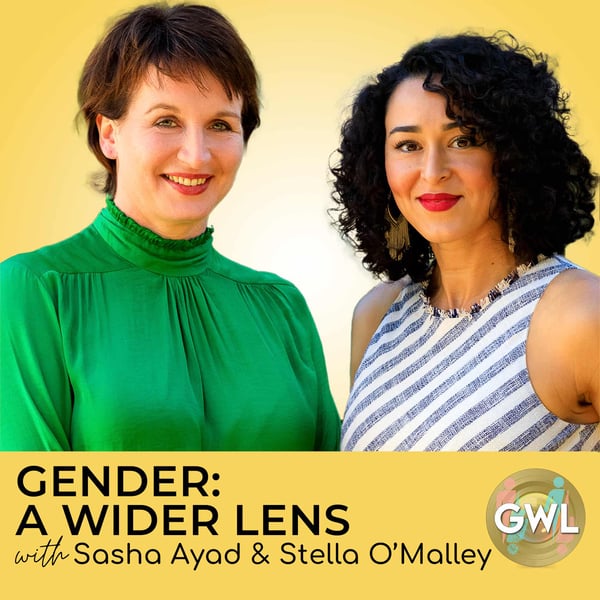Dysphoria Means Something Different to Different People
Gender: A Wider Lens
Sasha Ayad and Stella O'Malley
4.6 • 961 Ratings
🗓️ 9 November 2024
⏱️ 4 minutes
🧾️ Download transcript
Summary
Dysphoria is not a one-size-fits-all experience but rather a complex phenomenon that varies significantly from person to person. Factors like personal history, family dynamics, societal expectations, and even localized community attitudes all influence how dysphoria is felt and interpreted. While some people may experience dysphoria as an intense discomfort with their physical body, others may feel it more as a social dissonance or a sense of incongruence with traditional gender roles. This variability suggests the need for a patient, individualized approach, allowing each person the space to explore their identity in context rather than rushing into interventions that might overlook these diverse influences. By approaching gender questions with an individualized, patient-centered perspective, this approach supports genuine self-alignment and nurtures well-rounded personal growth.
In this bonus episode for premium subscribers, Aaron Kimberly advocates for both individual autonomy in gender expression and the importance of responsible, informed guidance that encourages authenticity without immediate recourse to medicalization. By focusing on informed choices and gradual exploration, Aaron argues, individuals can find alignment within themselves, rooted in authenticity and supported by thoughtful, attentive care; seek to understand the underlying factors of gender identity and dysphoria; and ultimately foster a process that encourages self-discovery, resilience, and growth.
Watch our full length episode with Aaron Kimberly: https://www.widerlenspod.com/p/episode-192
For instructions on setting up a private feed to listen to our premium content in your favorite podcast app, visit https://www.widerlenspod.com/p/how-to-listen-to-our-full-premium.
Transcript
Click on a timestamp to play from that location
| 0:00.0 | Hi, widerlens podcast listener. What you're about to hear is a preview of one of our bonus episodes for premium subscribers. |
| 0:08.0 | If you'd like to hear the rest, head over to widerlenspod.com and sign up for any of our paid membership options. |
| 0:15.0 | Paid subscriptions allow us to continue to create high quality content for our listeners all around the world. |
| 0:20.0 | Now here's the preview of this week's exclusive content. to create high quality content for our listeners all around the world. |
| 0:23.7 | Now here's the preview of this week's exclusive content. |
| 0:31.8 | I think there is a difference between a person who just happens to be masculine and can own it versus a person who is both masculine and has severe, severe gender dysphoria. |
| 0:37.4 | And I'm wondering if you can maybe |
| 0:39.3 | just speak to, based on your experience in different communities and through all of the work |
| 0:43.9 | that you've done and your own experience, like, what do you think the difference is for those people? |
| 0:47.9 | Like, why do some people have gender dysphoria and other people just confidently, |
| 0:52.7 | proudly own their way of being. |
| 0:56.8 | It's a good question and I think that's a big part of the challenge doing the clinical work, |
| 1:03.2 | isn't it? I don't know that we necessarily have 100% solid answers, you know, like what is |
| 1:10.0 | that exact mechanism and I think it could be different |
| 1:12.2 | from person to person. And what the word dysphoria means seems to be different from person to |
| 1:17.6 | person, right? Like some, it's very much a body dysmorphia and some it's, they'd say, no, it's |
| 1:23.1 | more of a, like, a social role thing. |
| 1:32.3 | But yeah, I mean, when I was working with young people, |
| 1:36.6 | I would invite them into just a curiosity about that and say, |
| 1:38.5 | you know, okay, before we have, |
| 1:45.4 | before we put anything medical on the table and entertain the idea that you want to live as male, like, we need to ask the questions, what is it about being female that is so difficult for you right now? |
| 1:51.2 | And I would sometimes have young people start crying, you know, when you ask that question. |
... |
Please login to see the full transcript.
Disclaimer: The podcast and artwork embedded on this page are from Sasha Ayad and Stella O'Malley, and are the property of its owner and not affiliated with or endorsed by Tapesearch.
Generated transcripts are the property of Sasha Ayad and Stella O'Malley and are distributed freely under the Fair Use doctrine. Transcripts generated by Tapesearch are not guaranteed to be accurate.
Copyright © Tapesearch 2025.

